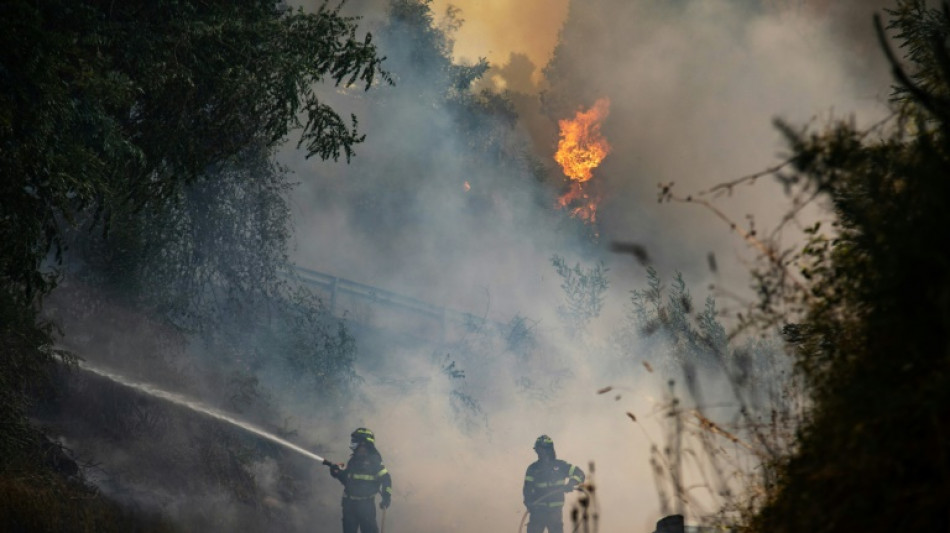
-
 Keller overtime strike gives USA Olympic women's ice hockey gold
Keller overtime strike gives USA Olympic women's ice hockey gold
-
NASA delivers harsh assessment of botched Boeing Starliner test flight

-
 US Fed Governor Miran scales back call for rate cuts this year
US Fed Governor Miran scales back call for rate cuts this year
-
Gu qualifies for Olympic halfpipe final marred by horror crash

-
 Trump issues Iran with ultimatum as US ramps up military presence
Trump issues Iran with ultimatum as US ramps up military presence
-
Peru's brand-new president under fire for child sex comments

-
 UK police hold ex-prince Andrew for hours in unprecedented blow
UK police hold ex-prince Andrew for hours in unprecedented blow
-
Former Olympic freeski halfpipe champion Sharpe crashes heavily

-
 Former Olympic champion Sharpe suffers heavy halfpipe crash
Former Olympic champion Sharpe suffers heavy halfpipe crash
-
Belarus says US failed to issue visas for 'Board of Peace' meeting

-
 Forest boss Pereira makes perfect start with Fenerbahce rout in Europa play-offs
Forest boss Pereira makes perfect start with Fenerbahce rout in Europa play-offs
-
Alcaraz fights back to book last four berth in Qatar

-
 England captain Itoje warns of 'corrosive' social media after abuse of Ireland's Edogbo
England captain Itoje warns of 'corrosive' social media after abuse of Ireland's Edogbo
-
War-weary Sudanese celebrate as Ramadan returns to Khartoum

-
 Townsend expects recalled Scotland duo to shine in Six Nations clash with Wales
Townsend expects recalled Scotland duo to shine in Six Nations clash with Wales
-
Peru's new president under fire for child sex comments
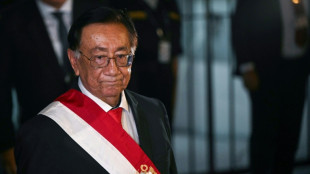
-
 UK king opens London fashion week despite brother's arrest
UK king opens London fashion week despite brother's arrest
-
Belarus frees opposition politician Statkevich
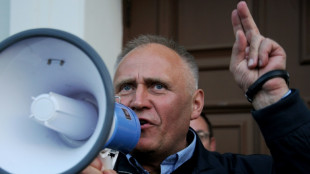
-
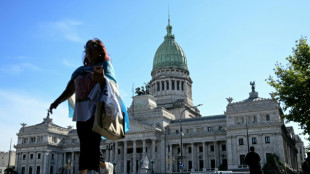 Striking Argentine workers slow down Buenos Aires in protest over labor reforms
Striking Argentine workers slow down Buenos Aires in protest over labor reforms
-
Starlink loss a blow to Russian forces in Ukraine: experts
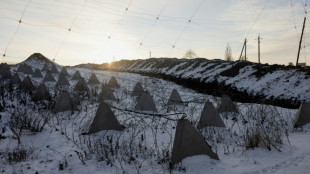
-
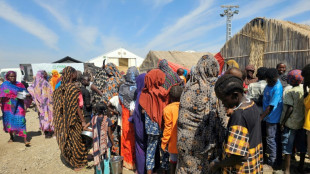 UN's Sudan probe finds 'hallmarks of genocide' in El-Fasher
UN's Sudan probe finds 'hallmarks of genocide' in El-Fasher
-
Belarus frees opposition politician Statkevich: wife
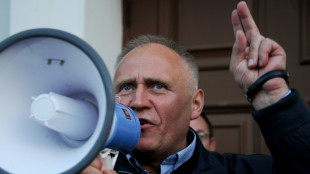
-
 Rocket re-entry pollution measured in atmosphere for first time
Rocket re-entry pollution measured in atmosphere for first time
-
Airbus ready to build two new European fighters if countries want

-
 Canada makes push to attract skilled migrants, including for defence
Canada makes push to attract skilled migrants, including for defence
-
US threatens to leave IEA if net zero focus remains
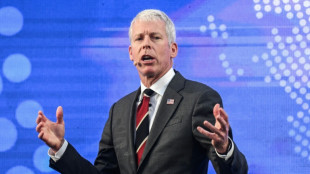
-
 Walmart outlines big AI ambitions as it reports mixed results
Walmart outlines big AI ambitions as it reports mixed results
-
Trump kicks off his 'Board of Peace,' as war clouds loom on Iran

-
 UK pubs to stay open late if home nations reach World Cup knockouts
UK pubs to stay open late if home nations reach World Cup knockouts
-
TotalEnergies in high-stakes French trial over climate change

-
 Bosnia probes fascist salutes at Croatian singer's concert
Bosnia probes fascist salutes at Croatian singer's concert
-
US and Israel issue dire warnings to Iran alongside US military buildup
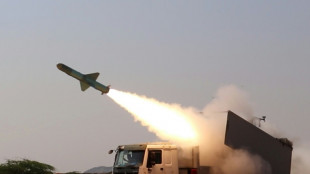
-
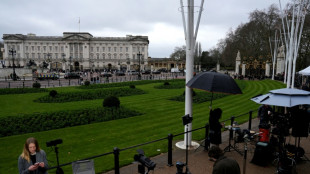 British public cheer Andrew's arrest with a smile and relief
British public cheer Andrew's arrest with a smile and relief
-
Argentine workers go on strike to protest Milei's labor reforms
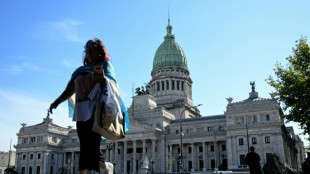
-
 Nakai targets Olympic skating upset as 'skimo' makes debut
Nakai targets Olympic skating upset as 'skimo' makes debut
-
What we know about ex-prince Andrew's friendship with Epstein

-
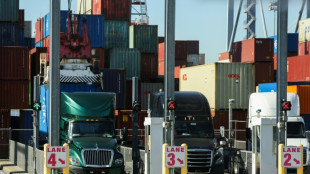 US trade deficit in goods widens to new record in 2025
US trade deficit in goods widens to new record in 2025
-
Oil extends gains on US-Iran tensions, stocks retreat

-
 Williams 'on the back foot' after missing Barcelona: Albon
Williams 'on the back foot' after missing Barcelona: Albon
-
Real Madrid submit evidence to UEFA in Vinicius racism probe

-
 Olympics rev up Milan's renewal but locals fear price to pay
Olympics rev up Milan's renewal but locals fear price to pay
-
Cardona Coll, Fatton win Olympic-debuting ski mountaineering sprint golds

-
 MSF will keep operating in Gaza 'as long as we can': mission head
MSF will keep operating in Gaza 'as long as we can': mission head
-
Russian Filippov wins first medal at Milan-Cortina Games for individual neutral athletes

-
 Italian Milan takes sprint honours at UAE Tour
Italian Milan takes sprint honours at UAE Tour
-
Dozens killed in jihadist attacks in northwest Nigeria

-
 Zimbabwe unbeaten in T20 World Cup after six-wicket Sri Lanka win
Zimbabwe unbeaten in T20 World Cup after six-wicket Sri Lanka win
-
Postecoglou admits taking Nottingham Forest post a 'bad decision'

-
 Switzerland's Fatton wins women's ski mountaineering sprint on Olympic debut
Switzerland's Fatton wins women's ski mountaineering sprint on Olympic debut
-
Kinghorn, Van der Merwe return for Scotland against Six Nations strugglers Wales


Climate change drives Europe towards record fire year
The fires that have torched through Europe are on course to make 2022 a record year for forest loss on the continent, as scientists warn climate change is already contributing to ever fiercer blazes.
Fires in parts of France, Spain and Portugal have already burned more land so far this year than in all of 2021 -- some 517,881 hectares (5,000 km2), or the equivalent area of Trinidad and Tobago.
"The situation is much worse than expected, even if we were expecting temperature anomalies with our long-term forecasts," Jesus San Miguel, coordinator of the European Union's EFFIS satellite monitoring service, told AFP.
San Miguel said there could be worse to come, adding that the hallmarks of global heating were all over this year's fire season.
"Ignition is caused by people (but) the heatwave is critical, and clearly linked to climate change," he said.
"The fire season used to be concentrated from July to September. Now we are getting longer seasons and very intense fire. We expect climate change to create higher fire conditions in Europe."
Temperatures have warmed just over 1.1 degrees Celsius since the industrial era, and the United Nations Says Earth is currently on track to warm some 2.7C this century.
This additional heat is enough to make the kind of heatwaves that baked Europe this week more likely to occur and to last longer when they do.
- Rising fire risk -
EFFIS said close to 40,000 hectares of forest in France have been lost to fire so far this year, more than the 30,000 that burned there in 2021.
Spain -- where more than 500 people died during a 10-day heatwave this month -- has seen 190,000 hectares go up in smoke this year, compared with 85,000 last year.
EFFIS said that Europe could end 2022 with more land burned by area than 2017, currently the worst recorded year for wildfires with nearly 1,000,000 hectares lost.
In all of 2021, 470,359 hectares of forest were lost to fires in Europe, mainly in Italy and Greece.
Yet those two countries have had a relatively good year in terms of wildfires: Italy has lost 25,000 hectares compared with more than 150,000 in 2021 and Greece has lost 7,800 compared with 130,000 a year ago.
This week temperatures topped 40C for the first time on record in Britain, where a relatively high 20,000 hectares have burned since January.
A study in February found that the proportion of July and August days of extreme fire risk in Britain would increase from 9 percent currently to 26 percent with 2C of warming.
Mark Parrington, head scientist at the EU's Copernicus atmospheric monitoring service, said climate change had already contributed to how long wildfires last when they break out.
"What is remarkable is just how long they burn," he told AFP. "This is not the kind of thing we typically see in Europe.
Hotter temperatures combined with near-unprecedented drought conditions across much of Europe contribute to making forests tinder dry, providing the ideal conditions for wildfires to start and then spread.
"There is a lot of fuel," said Parrington. "In central and southern Europe there is a clear upward trend for fire risk."
As well as damaging ecosystems and removing carbon-absorbing vegetation from the land, wildfires themselves contribute to climate change by emitting greenhouse gases such as carbon dioxide.
Copernicus this week said fires in June and July in Spain and Morocco had produced some 1.3 million tonnes of CO2 -- the highest of any equivalent period since records began in 2003.
The blazes also affect air quality for nearby populations. In southwest France, elevated levels of nitrogen dioxide have been noted for days over the city of Bordeaux, just north of two major burn areas, and even in Paris, some 500 kilometres (310 miles) northeast.
F.Dubois--AMWN


